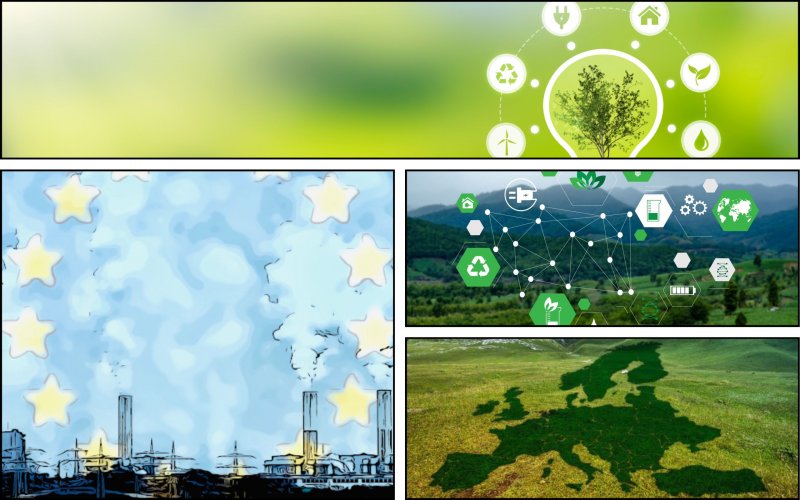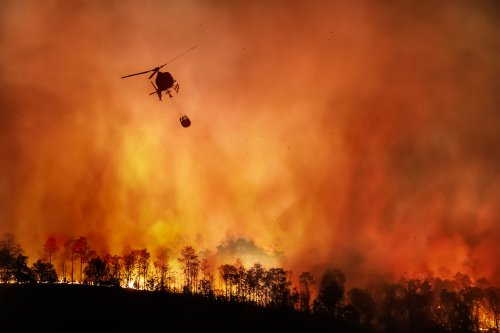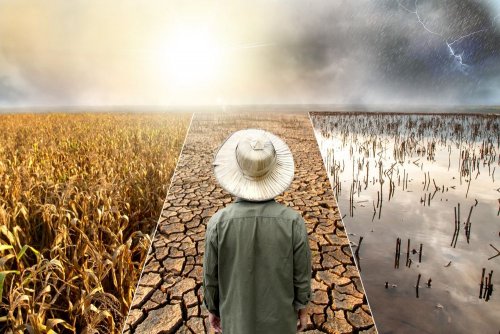The European Union took 12 large-scale measures to combat climate change during the hottest year of 2023.
The measures include important climate agreements, including international ones, funds to promote a green transition, energy efficiency measures, sustainable development, etc., reports European Commission.
"The urgency of taking decisive climate measures has never been greater," the message emphasized.
Among the most important climate measures of 2023, the European Commission named:
- adopting Fit for 55 – in 2023, the EU adopted the last parts of an ambitious legislative package that will contribute to the achievement of climate goals by 2030;
- historic agreements at COP28 – creation of a Damages and Damages Fund, agreement to abandon fossil fuels, triple global green capacity by 2030 and double energy efficiency;
- functioning innovation fund, which promotes the development of green technologies, is one of the world's largest funding programs for demonstrating innovative low-carbon technologies. In 2023, about €6.5 billion has been allocated for more than 100 companies for innovative projects;
- launching industrial plan of the Green Deal €660 billion to increase the competitiveness of the EU's green industry and accelerate its transition to climate neutrality;
- launching European Hydrogen Bank (European Hydrogen bank) – an auction system that will increase the production of renewable hydrogen in Europe. The €800 million fund is filled with revenues from the greenhouse gas emissions trading system to bridge the gap between the price of production and the price consumers are currently willing to pay;
- functioning Modernization Fund – within three years, 9 countries received €4.66 billion from the fund to support 50 projects to modernize energy systems, reduce greenhouse gas emissions in energy, industry and transport, and improve energy efficiency;
- improving the environmental friendliness of motor vehicles - currently, electric cars make up 23% of the new car market in the EU. In addition, bloc countries have agreed to make all new cars emission-free from 2035. Ambitious legislation on emissions from trucks and other heavy-duty vehicles is also being developed in the EU;
- space programs – the European Commission joined forces with the European Space Agency and agreed to work more closely on the use of Earth observation satellites. It will help collect information about climate, atmosphere, oceans and land to address climate crisis such as deforestation, weather changes, etc.;
- increasing the environmental awareness of Europeans - the survey showed that 93% consider global warming to be a serious problem, and the majority of respondents believe that the green transition should be accelerated;
- creating an annual EU day for victims of global climate crisis July 15 – The date is the anniversary of the deadly floods that claimed many lives in Belgium, Germany, the Netherlands and Luxembourg in 2021. The event should raise awareness of climate disasters;
- Law on restoration of nature - sets binding targets to restore 20% of land and seas by 2030 and 90% of degraded habitats by 2050;
- new international partnerships for a greener future – the EU has concluded new environmental alliances with Norway, Canada, Korea, Senegal and Honduras.
Earlier, EcoPolitic wrote, that France, Germany, Austria, Belgium, the Netherlands, Luxembourg and Switzerland have committed to close all power plants, working on coal and natural gas, by 2035 in order to decarbonize their energy systems.
As EcoPolitic previously reported, in Europe since the full-scale invasion of Russia into Ukraine, renewable energy capacities have been added replacing about 230 TWh of electricity from fossil fuels, i.e. 8.2% of annual production.





